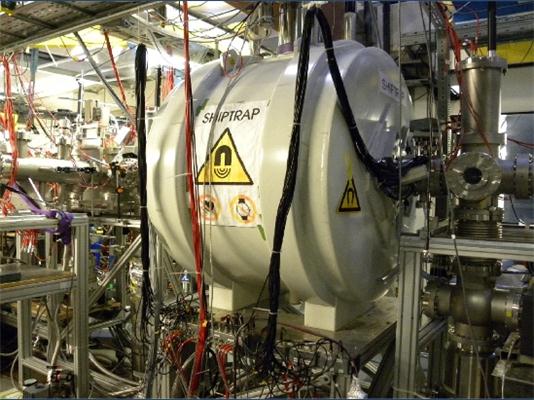A group of researchers have collaborated to measure the effects of layers on super-heavy elements. These elements have not yet been discovered in nature. So far, they have been created by bombarding elements in particle accelerators. These elements have an atomic number greater than Z=103, which is higher than the element lawrence.
 SHIPTRAP facilities
SHIPTRAP facilities
Nuclear physics labs such as the GSI use particle accelerators. However, it has not been possible to create these super-heavy elements on a mass scale. Scientists have been successful in creating atomic scale level quantities.
The present study includes researchers from the Helmholtz Institute, GSI, the Max-Planck Institute of Nuclear Physics, the PNPI Institute and the universities of Granada, Heidelberg, Munich, Padua, Mainz, Giessen and Greifswald.
By measuring the effects of layers on super-heavy elements, the researchers may be able to locate the "Island of Stability," which states the possibility of existence of super-heavy elements that possess high stability and long average lives. The study was performed at the Center of for Heavy Ion Research (GSI) in Darmstadt using a particle accelerator to measure the isotopes of lawrence and nobelium.
The "layer effects" in the atomic nucleus of elements provide the stability for super-heavy elements. Protons and neutrons are formed in layers which are called as "magic layers," and they exhibit a strong bond. This prevents the disintegration of super-heavy elements.
The University of Granada has announced that it is developing a quantum sensor for accurate and precise measurement of nuclei mass. It will be able to measure the greatest mass of nuclei that has been measured so far. This quantum sensor is to be integrated in the SHIPTRAP facilities of GSI's accelerator.
The European Research Council has awarded 1.5 million to Professor Daniel Rodríguez at the Department of Atomic, Molecular and Nuclear Physics at the University of Granada for developing the device.
The study has been published in the journal Science.